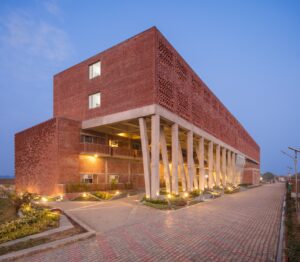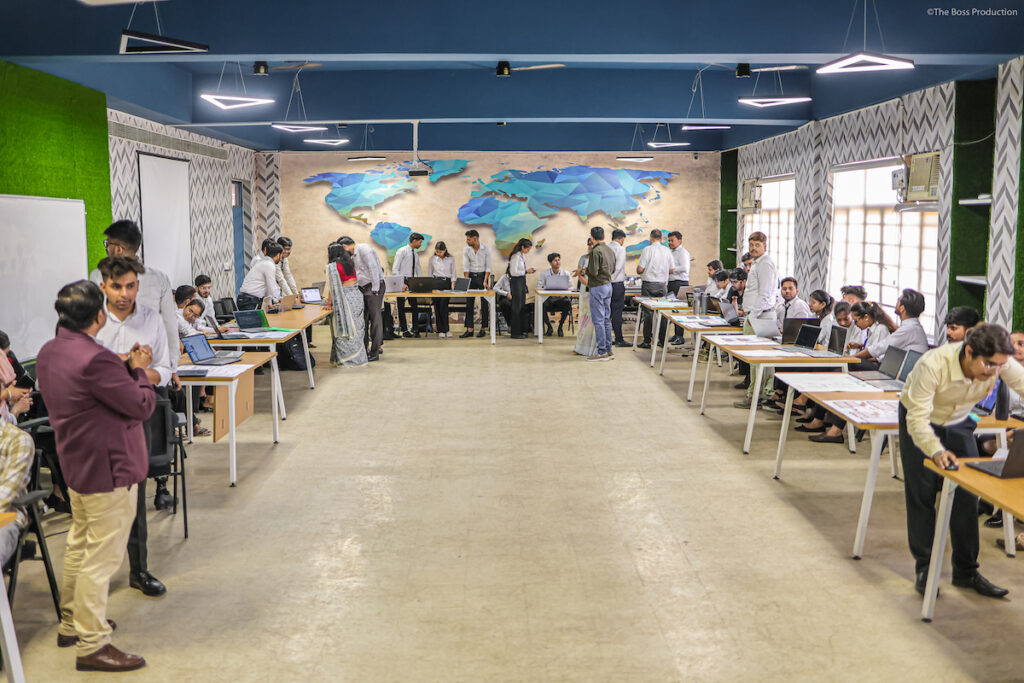D Pharma Fees
The fees for pursuing a Diploma in Pharmacy (D.Pharm) in India can vary significantly. D Pharma Fees: A Comprehensive Guide to Top Colleges Admission Costs explores how these costs differ based on whether the institution is government or private.
Typically, government institutions charge lower fees, ranging from ₹10,000 to ₹50,000 per year, making them a more affordable option for students. In contrast, private institutions often have higher D Pharma Fees, ranging from ₹50,000 to ₹1.5 lakhs per year, reflecting their infrastructure and additional facilities.
The total fee structure often includes tuition fees, examination fees, lab fees, and other miscellaneous charges.
When calculating the overall cost of the program, students should also account for additional expenses such as books, accommodation, and personal costs. While D Pharma Fees cover tuition, these supplementary expenses can significantly impact the total budget for the course.
Some of the most opted courses in India and St. Andrews college or different Engineering college or Management colleges are as follows:-
- Btech
- Btech CSE
- MTech
- Btech ETCE
- BCA
- BBA
- MBA
- MCA
- DPharma – St. Andrews College of Pharmacy
- BPharma – St. Andrews College of Pharmacy
- BArch – St. Andrews College of Architecture
Top D Pharma Colleges and Their Fee Structure
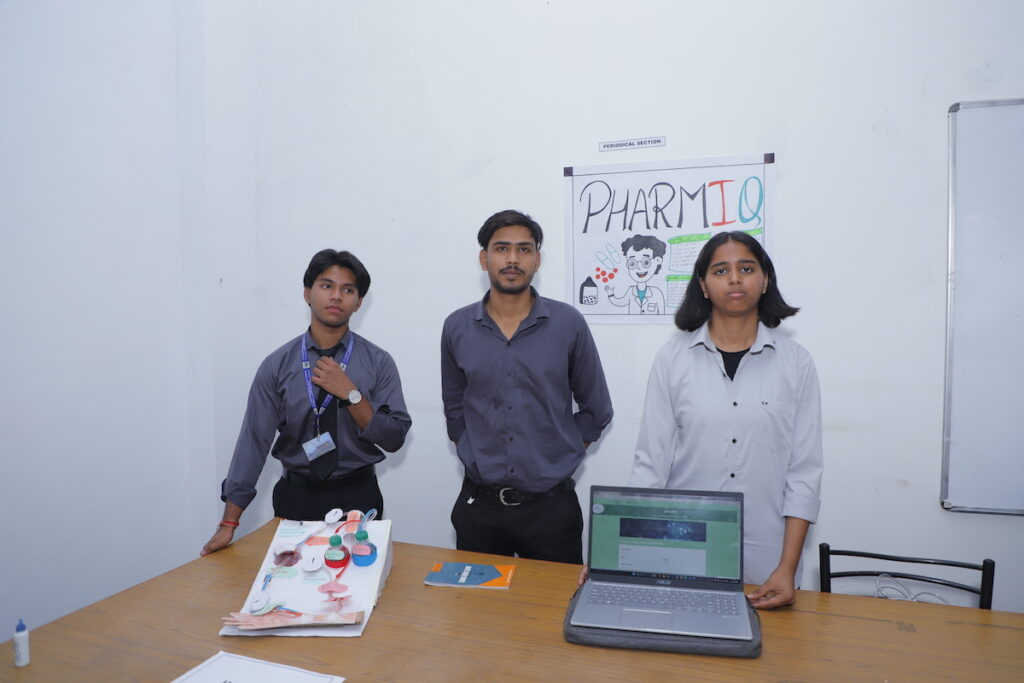
Here is a list of some of the top D.Pharm (Diploma in Pharmacy) colleges in India along with their approximate fee structure:
Jamia Hamdard University, New Delhi
- Fee Structure: ₹1.2 – ₹1.5 lakhs per annum
- Highlights: Renowned for its pharmacy courses with excellent faculty and infrastructure.
St. Andrews College of Pharmacy (SACP), Gurgaon
- Fee Structure: ₹78,500 per annum
- Highlights: One of the top pharmacy institutes in India with a global reputation.
Delhi Institute of Pharmaceutical Sciences and Research (DIPSAR), New Delhi
- Fee Structure: ₹8,500 – ₹10,000 per annum
- Highlights: A government institute known for low fees and excellent academic facilities.
Institute of Chemical Technology (ICT), Mumbai
- Fee Structure: ₹80,000 – ₹90,000 per annum
- Highlights: Famous for research and academic excellence in pharmacy.
JSS College of Pharmacy, Ooty
- Fee Structure: ₹1 – ₹1.3 lakhs per annum
- Highlights: Known for strong academic curriculum and experienced faculty.
Poona College of Pharmacy, Pune
- Fee Structure: ₹1.2 – ₹1.4 lakhs per annum
- Highlights: One of the best pharmacy colleges in Maharashtra.
Birla Institute of Technology, Ranchi (BIT Mesra)
- Fee Structure: ₹1 – ₹1.1 lakhs per annum
- Highlights: Reputed for its advanced research programs and industry exposure.
Amrita School of Pharmacy, Kochi
- Fee Structure: ₹90,000 – ₹1.1 lakhs per annum
- Highlights: Known for modern labs and comprehensive pharmacy education.
L. M. College of Pharmacy, Ahmedabad
- Fee Structure: ₹60,000 – ₹70,000 per annum
- Highlights: One of the oldest pharmacy colleges in India with a well-established network.
Al-Ameen College of Pharmacy, Bangalore
- Fee Structure: ₹1 – ₹1.2 lakhs per annum
- Highlights: Known for high-quality education and placement opportunities in the pharmaceutical industry.
Government vs Private D Pharma College Fees

Here’s a comparison of fee structures between government and private D.Pharm colleges in India:
Government D.Pharm Colleges:
Government colleges generally have significantly lower fees due to state and central subsidies. The following are typical fee ranges:
Fee Range: ₹8,000 to ₹50,000 per annum.
Examples:
- Delhi Institute of Pharmaceutical Sciences and Research (DIPSAR), New Delhi: ₹8,500 – ₹10,000 per annum.
- Government College of Pharmacy, Bangalore: ₹20,000 – ₹30,000 per annum.
- Government Polytechnic for Women, Chandigarh: ₹12,000 – ₹20,000 per annum.
Private Colleges for D Pharmacy Course :
Private colleges tend to have higher fees due to better facilities, infrastructure, and additional expenses like labs, training, etc.
Fee Range: ₹70,000 to ₹1.5 lakhs per annum.
Examples:
- Manipal College of Pharmaceutical Science, Manipal: ₹1.2 – ₹1.4 lakhs per annum.
- Amrita School of Pharmacy, Kochi: ₹90,000 – ₹1.1 lakhs per annum.
- Al-Ameen College of Pharmacy, Bangalore: ₹1 – ₹1.2 lakhs per annum.
Key Differences:
Affordability: Government colleges are much more affordable compared to private ones, making them accessible to a larger section of society.
Facilities & Infrastructure: Private colleges often have better facilities, labs, and more modern infrastructure, though government colleges can still provide excellent education.
Placements: Some private colleges may offer better placement opportunities due to their industry connections, but government institutions also have solid reputations, particularly for students aiming for government jobs.
State-Wise D Pharma Fee Comparison

Here’s a state-wise fee comparison for D.Pharm (Diploma in Pharmacy) courses across government and private institutions. The fees vary significantly depending on the state, institution type (government or private), and the facilities provided.
Delhi
- Government Colleges: ₹8,500 – ₹15,000 per annum.
- Example: Delhi Institute of Pharmaceutical Sciences and Research (DIPSAR)
- Private Colleges: ₹78,500 per annum.
- Example: St. Andrews College of Pharmacy (SACP), Gurgaon
Maharashtra
- Government Colleges: ₹15,000 – ₹30,000 per annum.
- Example: Government College of Pharmacy, Karad
- Private Colleges: ₹1 lakh – ₹1.5 lakhs per annum.
- Example: Poona College of Pharmacy, Pune
Karnataka
- Government Colleges: ₹20,000 – ₹40,000 per annum.
- Example: Government College of Pharmacy, Bangalore
- Private Colleges: ₹1 – ₹1.3 lakhs per annum.
- Example: Al-Ameen College of Pharmacy, Bangalore
Tamil Nadu
- Government Colleges: ₹10,000 – ₹20,000 per annum.
- Example: Madras Medical College, Chennai
- Private Colleges: ₹80,000 – ₹1 lakh per annum.
- Example: JSS College of Pharmacy, Ooty
Uttar Pradesh
- Government Colleges: ₹10,000 – ₹25,000 per annum.
- Example: Government Polytechnic, Lucknow
- Private Colleges: ₹70,000 – ₹1.1 lakh per annum.
- Example: IIMT College of Pharmacy, Greater Noida
Rajasthan
- Government Colleges: ₹15,000 – ₹30,000 per annum.
- Example: Lachoo Memorial College of Science and Technology, Jodhpur
- Private Colleges: ₹70,000 – ₹1 lakh per annum.
- Example: Jaipur National University, Jaipur
Gujarat
- Government Colleges: ₹10,000 – ₹20,000 per annum.
- Example: Government College of Pharmacy, Ahmedabad
- Private Colleges: ₹60,000 – ₹90,000 per annum.
- Example: APMC College of Pharmaceutical Education, Himatnagar
Punjab
- Government Colleges: ₹12,000 – ₹20,000 per annum.
- Example: Government Polytechnic College, Amritsar
- Private Colleges: ₹80,000 – ₹1 lakh per annum.
- Example: Chandigarh College of Pharmacy, Mohali
West Bengal
- Government Colleges: ₹10,000 – ₹15,000 per annum.
- Example: Jadavpur University, Kolkata
- Private Colleges: ₹80,000 – ₹1.2 lakh per annum.
- Example: BCDA College of Pharmacy, Kolkata
Kerala
- Government Colleges: ₹15,000 – ₹25,000 per annum.
- Example: Government Medical College, Thiruvananthapuram
- Private Colleges: ₹70,000 – ₹90,000 per annum.
- Example: Amrita School of Pharmacy, Kochi
Additional Costs: Hostel, Library, and Examination Fees

In addition to the tuition fees for D.Pharm courses, students should also factor in other expenses such as laboratory fees, examination fees, and study materials. D Pharma Fees often cover basic tuition, but these additional costs can vary significantly depending on the institution, impacting the overall budget for the course.
Hostel Fees:
Government Colleges: ₹20,000 – ₹60,000 per annum (depending on location and facilities).
- Government institutions typically have subsidized hostel fees but may offer basic facilities.
- Example: Delhi Institute of Pharmaceutical Sciences and Research (DIPSAR) – ₹25,000 – ₹40,000 per annum.
Private Colleges: ₹50,000 – ₹1.2 lakhs per annum.
- Private colleges generally offer better amenities such as air-conditioning, Wi-Fi, recreational facilities, etc., which increases the cost.
- Example: St. Andrews College of Pharmacy (SACP), Gurgaon – ₹60,000 – ₹1 lakh per annum.
Library Fees:
Government Colleges: ₹500 – ₹2,000 per annum.
- Nominal fees in most government institutions, often included in the overall fees.
- Example: Government College of Pharmacy, Bangalore – ₹500 per annum.
Private Colleges: ₹1,000 – ₹5,000 per annum.
- Private colleges often charge higher fees for access to digital libraries, subscriptions, and resources.
- Example: Jamia Hamdard University – ₹2,500 per annum.
Examination Fees:
Government Colleges: ₹1,000 – ₹5,000 per semester.
- Examination fees vary, but government colleges tend to keep them affordable.
- Example: Madras Medical College, Chennai – ₹1,500 per semester.
Private Colleges: ₹3,000 – ₹8,000 per semester.
- Private colleges usually have higher exam fees to cover administrative and other operational costs.
- Example: Poona College of Pharmacy, Pune – ₹5,000 per semester.
Other Additional Costs:
Uniform and Lab Coats: ₹2,000 – ₹5,000 (one-time).
Lab Fees: ₹3,000 – ₹10,000 per annum.
- Private colleges often charge more for advanced laboratory facilities.
Security Deposit: ₹5,000 – ₹20,000 (refundable).
- Typically charged at the start of the course and refundable at the end.
Medical Insurance and Miscellaneous Fees: ₹1,000 – ₹3,000 per annum.
Scholarships and Financial Aid for D Pharma Students
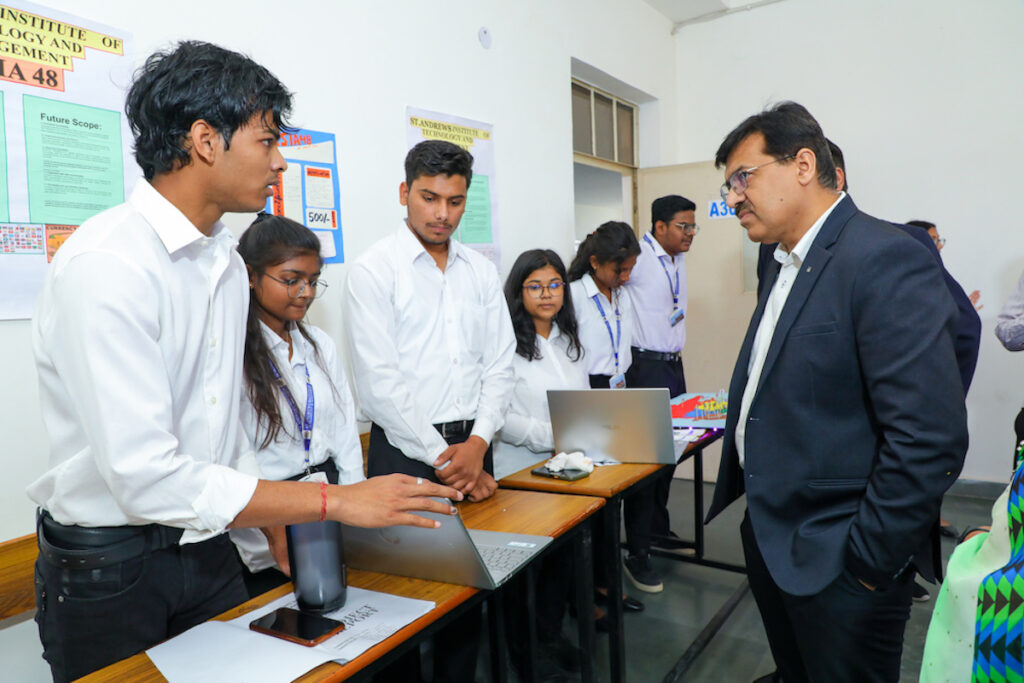
Here are some scholarships and financial aid options available for D.Pharm (Diploma in Pharmacy) students in India.
These schemes are offered by both the government and private organizations, aimed at supporting students financially:
National Scholarship Portal (NSP)
- Provider: Government of India
- Eligibility: Students belonging to economically weaker sections (EWS), Scheduled Castes (SC), Scheduled Tribes (ST), and Other Backward Classes (OBC).
- Amount: Varies; can cover tuition fees, maintenance, and other educational expenses.
- How to Apply: Through the National Scholarship Portal.
Post Matric Scholarship for Minorities
- Provider: Ministry of Minority Affairs, Government of India
- Eligibility: Students from minority communities (Muslims, Christians, Sikhs, Buddhists, Zoroastrians, Jains) with annual family income less than ₹2 lakhs.
- Amount: Up to ₹10,000 per annum for D.Pharm students.
- How to Apply: Through the National Scholarship Portal (NSP).
AICTE Pragati Scholarship for Girls
- Provider: All India Council for Technical Education (AICTE)
- Eligibility: Female students admitted to AICTE-approved institutions, with a family income less than ₹8 lakhs per annum.
- Amount: ₹30,000 per annum or tuition fee waiver, plus ₹2,000 per month for 10 months.
- How to Apply: Apply online through the AICTE website.
AICTE Saksham Scholarship Scheme for Differently-Abled Students
- Provider: All India Council for Technical Education (AICTE)
- Eligibility: Differently-abled students with a family income of less than ₹8 lakhs per annum.
- Amount: ₹30,000 per annum and ₹2,000 per month for 10 months.
- How to Apply: Apply through the AICTE website.
State Government Scholarships
- Various state governments offer financial aid for D.Pharm students belonging to specific categories such as SC, ST, OBC, EWS, and minorities.
- Examples:
- Delhi: Delhi Government Post Matric Scholarship for SC/ST/OBC students.
- Maharashtra: State Government Scholarships for Economically Weaker Sections.
- Amount: Varies by state and category.
- How to Apply: Check respective state portals for more details.
Private Scholarships
- Indian Oil Academic Scholarships: Awarded to meritorious students across various fields, including pharmacy.
- Amount: ₹10,000 per month.
- Eligibility: Based on merit and financial need.
- How to Apply: Through the Indian Oil Corporation website.
- ONGC Scholarship for SC/ST Students: Offered by the Oil and Natural Gas Corporation.
- Amount: ₹48,000 per annum.
- Eligibility: Students from SC/ST categories with excellent academic records.
- How to Apply: Applications are invited online via the ONGC website.
- L’Oreal India For Young Women in Science Scholarship: Available for young women pursuing pharmacy and other science-related courses.
- Amount: Up to ₹2.5 lakhs.
- Eligibility: Female students with a family income of less than ₹4 lakhs.
- How to Apply: Through the L’Oreal India website.
Central Sector Scheme of Scholarships for College and University Students
- Provider: Department of Higher Education, Government of India
- Eligibility: Students from economically disadvantaged backgrounds who scored in the top 20th percentile in their respective board exams.
- Amount: ₹10,000 per annum for the first three years.
- How to Apply: Apply through the National Scholarship Portal.
Educational Loans
- Many banks and financial institutions in India offer student loans specifically for pharmacy courses. Interest rates vary, but some provide special concessions or subsidized rates for economically weaker sections.
- Examples:
- SBI Student Loan Scheme: Loan amounts up to ₹10 lakhs with a repayment period of up to 15 years.
- Bank of Baroda Education Loan: Covers up to ₹7.5 lakhs with flexible repayment options.
Institution-Specific Scholarships
- Many private and government colleges offer merit-based scholarships for D.Pharm students.
- Example: Some colleges provide a fee waiver or a reduction in tuition fees for students who perform exceptionally well in entrance exams or the first year.
Eligibility Criteria and Admission Process for DPharma
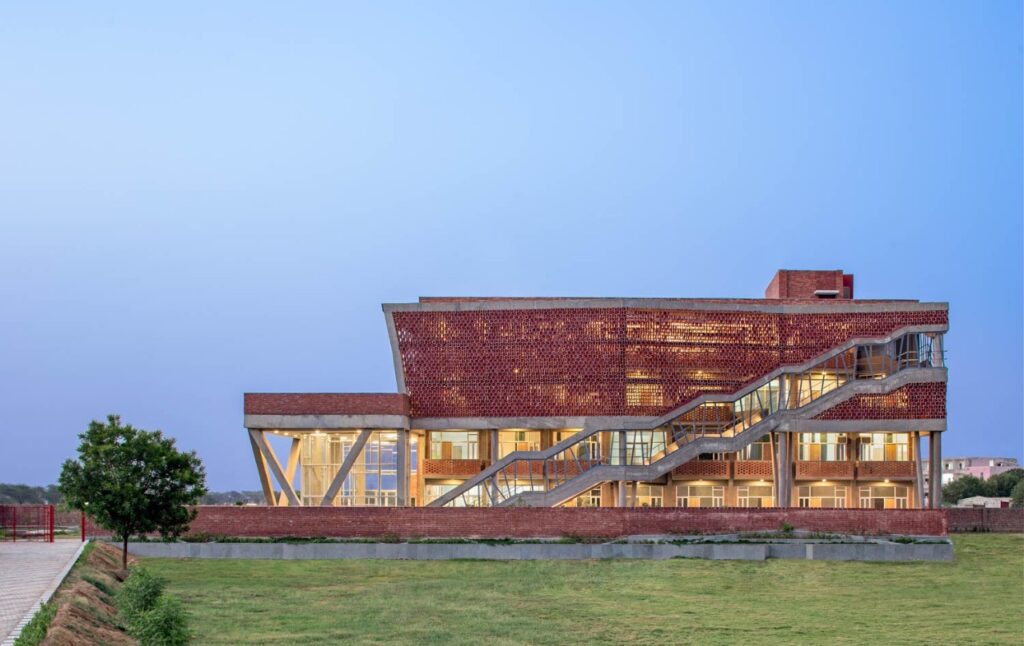
Here’s an overview of the eligibility criteria and the admission process for D.Pharm (Diploma in Pharmacy) courses in India:
Eligibility Criteria for Diploma in Pharmacy:
Educational Qualification:
- Candidates must have passed 10+2 (Senior Secondary) or its equivalent examination.
- Mandatory Subjects: Physics, Chemistry, and Biology or Mathematics.
- Students from both science streams (Biology or Mathematics) are eligible to apply.
- Some states or institutions may also accept students with vocational or technical qualifications related to pharmacy.
Minimum Marks Requirement:
- Generally, candidates need to secure at least 45% – 50% marks in their 10+2 examination (varies by institution and category).
- Reserved Category (SC/ST/OBC) candidates may receive a relaxation in the minimum marks criteria, which is typically around 40%.
Age Limit:
- The minimum age for admission is typically 17 years at the time of admission or during the admission year.
- There is no upper age limit for applying to D.Pharm programs in most states and institutions.
Nationality:
- Candidates must be Indian citizens to apply for D.Pharm courses in India.
- Some institutions also accept NRI (Non-Resident Indian) or OCI (Overseas Citizen of India) candidates.
D Pharma Admission Process
The admission process for D.Pharm varies depending on the college or state. However, the general process includes the following steps:
Entrance Exam-Based Admission:
- Many states and institutions conduct state-level entrance exams for admission to D.Pharm programs. The merit list is prepared based on entrance exam scores.
- Some important entrance exams for D.Pharm:
- GPAT (Graduate Pharmacy Aptitude Test) – some institutions accept GPAT scores for diploma courses.
- MHT CET (Maharashtra) – Maharashtra conducts a common entrance test for admission to D.Pharm.
- BCECE (Bihar Combined Entrance Competitive Examination) – Bihar state entrance exam for pharmacy courses.
- UPSEE (Uttar Pradesh) – State-level entrance for admission in UP colleges.
- Application Process:
- Fill out the online application form through the state entrance exam portal or college-specific portal.
- Appear for the entrance test, and based on the rank/merit list, students are called for counseling and seat allocation.
Merit-Based Admission:
- Many private and government colleges offer merit-based admissions, where selection is based on the 10+2 marks without an entrance exam.
- Application Process:
- Apply to the desired institutions by submitting your 10+2 marks and relevant documents through their online admission portal.
- Colleges release a merit list, and students are granted admission based on their rank and availability of seats.
Direct Admission:
- Some private colleges offer direct admission to D.Pharm programs based on 10+2 marks, without any entrance exam or merit-based ranking. These colleges might have management quota seats available.
Documents Required for Admission:
When applying for D.Pharm courses, the following documents are generally required:
- 10th and 12th mark sheets and passing certificates.
- Transfer Certificate (TC) from the last attended school/college.
- Character Certificate.
- Caste Certificate (if applicable).
- Income Certificate (if applying for scholarships).
- Domicile Certificate (for state-level seats).
- Entrance Exam Score Card (if applying through an entrance test).
- Passport-sized photographs.
- Aadhaar Card or any other valid ID proof.
Career Scope for D Pharma

The career scope after completing a D.Pharm (Diploma in Pharmacy) is broad, offering various opportunities in both the public and private sectors.
Here are the major career paths available:
Pharmacist:
Role: Dispensing medications to patients, ensuring proper dosage, and providing guidance on drug usage and side effects.
Job Locations: Hospitals (private and government), clinics, retail pharmacies, and healthcare centers.
Government Opportunities: Many government hospitals and healthcare institutions hire licensed pharmacists.
Salary: ₹2.5 – ₹4 lakhs per annum initially, with growth depending on experience.
Retail Pharmacy (Community Pharmacy):
Role: Opening and running your own pharmacy or working in an established retail pharmacy.
Requirements: After obtaining the D.Pharm degree and registering with the State Pharmacy Council, one can start a pharmacy business.
Income: The potential earnings in retail pharmacy depend on the location, client base, and scale of business. Many pharmacy owners earn ₹3 – ₹10 lakhs per annum or more.
Hospital Pharmacist:
Role: Managing the pharmacy department in hospitals, ensuring availability of medicines, and assisting doctors in prescription management.
Job Locations: Government and private hospitals, healthcare clinics.
Salary: ₹2 – ₹3.5 lakhs per annum for freshers in private hospitals; government hospitals may offer more with allowances and benefits.
Pharmaceutical Industry:
Roles:
- Production Executive: Supervising the production of pharmaceutical products in manufacturing units.
- Quality Control/Assurance Executive: Ensuring the quality and standards of pharmaceutical products are maintained.
Job Locations: Pharmaceutical companies (manufacturing, R&D labs, etc.).
Salary: ₹2.5 – ₹4 lakhs per annum for entry-level roles.
Drug Inspector:
Role: Monitoring and regulating drug safety, ensuring compliance with government regulations and quality standards.
Eligibility: After gaining experience (typically 2-3 years) and passing the required exams, you can apply for a drug inspector position.
Job Location: Government agencies such as the Food and Drug Administration (FDA) or the Central Drugs Standard Control Organization (CDSCO).
Salary: ₹6 – ₹8 lakhs per annum (varies by state and position).
Medical Representative (MR):
Role: Promoting and selling pharmaceutical products to doctors, clinics, and hospitals on behalf of pharmaceutical companies.
Skills Required: Strong communication and sales skills, knowledge of medical products.
Salary: ₹2.5 – ₹5 lakhs per annum, with performance-based incentives and bonuses.
Clinical Pharmacist:
Role: Working directly with healthcare teams to optimize medication usage and patient outcomes. Clinical pharmacists help in formulating and implementing medication plans for patients.
Job Locations: Hospitals, nursing homes, specialty care centers.
Salary: ₹3 – ₹5 lakhs per annum, with potential growth depending on experience and expertise.
Government Jobs:
Roles:
- Pharmacist in Government Hospitals: Employed under state or central health services.
- Railway Pharmacist: Jobs available in Indian Railways for dispensing medicines at railway hospitals.
- Army Pharmacist: Positions in defense healthcare systems.
Examinations: Candidates may need to clear state or central government exams for various roles.
Salary: ₹3 – ₹6 lakhs per annum, including government benefits such as healthcare, housing, and pension.
Research and Development (R&D):
Role: Assisting scientists and pharmacists in the research of new drugs and pharmaceutical products.
Job Locations: Pharmaceutical companies, research labs, and government research agencies.
Salary: ₹3 – ₹5 lakhs per annum.
Sales and Marketing:
Role: Working in the sales and marketing departments of pharmaceutical companies, promoting products, and driving sales strategies.
Job Locations: Pharmaceutical firms, medical marketing agencies.
Salary: ₹3 – ₹6 lakhs per annum, with opportunities for career growth.
Pathway to Further Studies:
Bachelor of Pharmacy (B.Pharm): After completing D.Pharm, students can pursue a B.Pharm degree for more advanced opportunities.
Master of Pharmacy (M.Pharm): Further education in specialized fields such as pharmacology, pharmaceutics, or clinical pharmacy can lead to higher positions in research, teaching, and pharmaceutical industries.
Pharm.D (Doctor of Pharmacy): A 6-year course offering advanced practice-oriented learning with a focus on clinical pharmacy and patient care.
MBA in Pharmaceutical Management: For those interested in management roles in the pharmaceutical industry.
Regulatory Affairs:
Role: Ensuring compliance with all the regulations concerning drugs and medical products in the pharmaceutical industry.
Job Location: Pharmaceutical companies, government agencies.
Salary: ₹4 – ₹6 lakhs per annum.
Internships and Practical Experience for DPharma
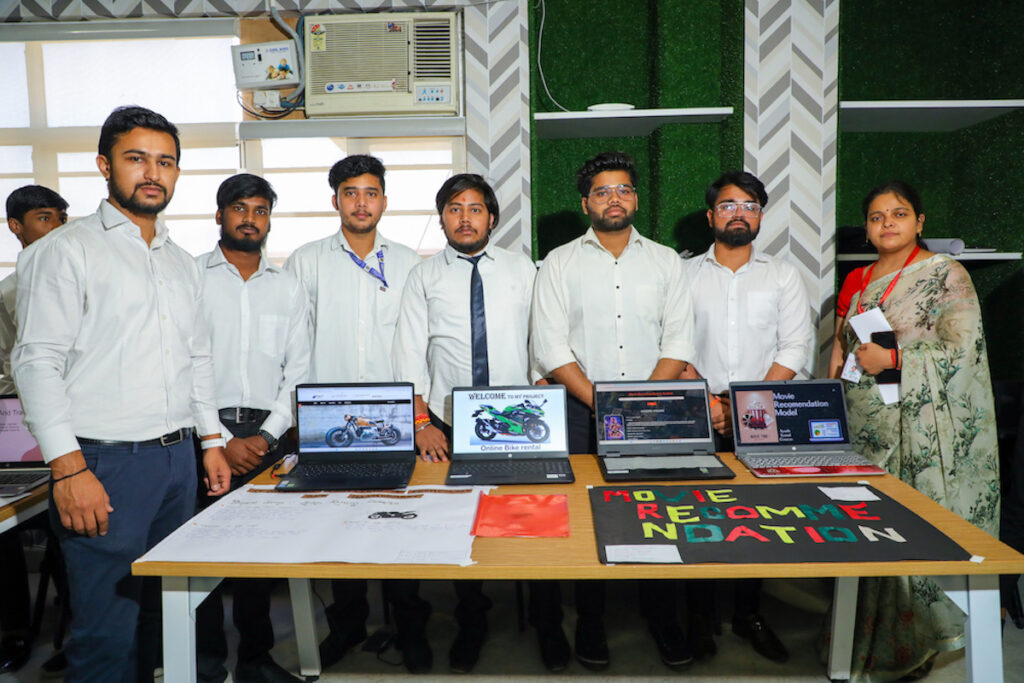
Internships and practical experience are crucial for the education and skill development of D.Pharm students, offering valuable exposure to the pharmaceutical sector. These opportunities allow students to gain hands-on knowledge in pharmacy operations, drug dispensing, and patient care. While D Pharma Fees cover academic training, internships provide practical insights that prepare students for diverse roles in the pharmaceutical industry.
Here are various opportunities and the importance of gaining hands-on experience during the course:
Hospital Internships:
- Role: Working under the supervision of a licensed pharmacist in a hospital setting.
- Experience Gained: Students gain knowledge in drug dispensing, patient counseling, and medication management while also getting exposure to hospital pharmacy protocols and interactions with healthcare teams. This practical experience prepares them to handle real-world challenges in hospital settings and ensures effective collaboration in patient care.
- Duration: Typically 3-6 months as part of the D.Pharm curriculum or during semester breaks.
- Opportunities:
- Government Hospitals: Students can intern at state-run hospitals, which often offer structured internship programs.
- Private Hospitals: Many private hospitals, such as Apollo Hospitals and Fortis Healthcare, offer internships to D.Pharm students.
Community Pharmacy Internship:
- Role: Working at a retail pharmacy or community pharmacy.
- Experience Gained: Handling prescriptions, managing drug inventory, dispensing medication, interacting with customers, and learning about over-the-counter (OTC) drugs.
- Duration: 2-4 months, depending on the pharmacy’s policy and the internship program.
- Examples:
- Retail Pharmacies: Internships are available at popular pharmacy chains like Apollo Pharmacy, MedPlus, and Guardian Pharmacy.
- Independent Pharmacies: Local, privately-owned pharmacies also provide opportunities for students to gain experience.
Pharmaceutical Industry Internships:
- Role: Interning with pharmaceutical companies provides valuable experience in areas such as drug manufacturing, quality control, and regulatory affairs, while enhancing knowledge of pharmacy practice. This exposure helps students understand industry standards and the role of pharmacists in ensuring the safety and efficacy of medications.
- Experience Gained: Understanding drug formulation, production processes, quality assurance, and compliance with regulatory guidelines.
- Opportunities:
- Production & Manufacturing: Internships in production plants help students learn about drug formulation, tablet production, and packaging.
- Quality Control (QC): Students assist in testing and ensuring the quality of pharmaceutical products.
- Examples:
- Sun Pharma, Cipla, Ranbaxy, and Dr. Reddy’s Laboratories offer internship programs.
Clinical Pharmacy Internship:
- Role: Working as part of a clinical pharmacy team, collaborating with doctors, nurses, and other healthcare providers to optimize patient medication.
- Experience Gained: Students get hands-on experience in patient care, medication management, and therapeutic drug monitoring.
- Duration: 3-6 months.
- Opportunities: Many large hospitals offer clinical pharmacy internships for D.Pharm graduates.
Internship in Research & Development (R&D):
- Role: Working in R&D labs of pharmaceutical companies or research institutions.
- Experience Gained: Exposure to drug research, preclinical studies, and development of new formulations.
- Opportunities: Pharmaceutical giants like Pfizer, GSK, and AstraZeneca offer internships in research and development.
Government Internship Programs:
- Pharmacy Council of India (PCI) mandates a 500-hour internship for D.Pharm students, which should be completed over a minimum of three months.
- Government-run hospitals and healthcare facilities often provide structured internship programs.
- Many state health departments also offer internship opportunities for D.Pharm students in rural health clinics.
Internships in Regulatory Affairs:
- Role: Working with pharmaceutical companies’ regulatory departments or government drug regulatory bodies like the Central Drugs Standard Control Organization (CDSCO).
- Experience Gained: Understanding drug approval processes, regulatory compliance, and preparing documentation for product registration.
- Opportunities: Large pharmaceutical companies like Novartis and Biocon offer internships in regulatory affairs.
Internship in NGOs/Healthcare Foundations:
- Role: Assisting in providing medications and healthcare services in underprivileged or rural areas.
- Experience Gained: Learning about the distribution of essential medicines, patient counseling, and public healthcare outreach.
- Examples: Internships with organizations like WHO India, Doctors Without Borders, and local healthcare foundations.
Online/Virtual Internships:
- Some pharmaceutical companies and healthcare institutions offer online internships focused on theoretical knowledge, pharmaceutical practices, and regulatory affairs.
- Examples: Platforms like Internshala, LinkedIn, and Chegg Internships often list virtual opportunities for pharmacy students.
FAQs
What is the fees of D Pharma in India?
The fees for a D Pharma course in India generally range from ₹50,000 to ₹1.5 lakh per year, varying significantly based on the institution. D Pharma Fees are typically lower in government colleges due to subsidies, while private colleges may charge higher fees, reflecting better infrastructure and additional services provided.
What is the use of D Pharmacy Diploma?
A D.Pharma (Diploma in Pharmacy) qualification equips students with foundational knowledge in pharmaceutical sciences, enabling them to work as licensed pharmacists. Graduates can dispense medications, provide drug-related advice, and manage pharmacy operations in hospitals, retail pharmacies, and clinics. They can also assist in pharmaceutical sales and marketing or pursue further studies like B.Pharma for advanced career options. D. Pharmacy course plays a critical role in ensuring safe and effective patient care by focusing on accurate medication management.
Which is better, B Pharm or D Pharm?
A D.Pharma (Diploma in Pharmacy) qualification provides students with foundational knowledge in pharmaceutical sciences, preparing them to work as licensed pharmacists. Graduates can dispense medications, offer drug-related advice, and manage pharmacy operations in settings like hospitals, retail pharmacies, and clinics. D Pharma Fees can vary based on the institution, making it a cost-effective option for entry-level roles. Graduates can also explore opportunities in pharmaceutical sales and marketing or pursue further studies, such as B.Pharma, for advanced career prospects, contributing to safe and effective patient care through precise medication management.
Does D pharmacy require NEET?
No, NEET is not required for admission to D.Pharm (Diploma in Pharmacy) programs in India. Instead, admissions are generally based on 12th standard (science stream) marks or entrance exams conducted by individual institutions or state authorities. D Pharma Fees and eligibility criteria vary across colleges, as NEET primarily caters to medical courses like MBBS and BDS.



